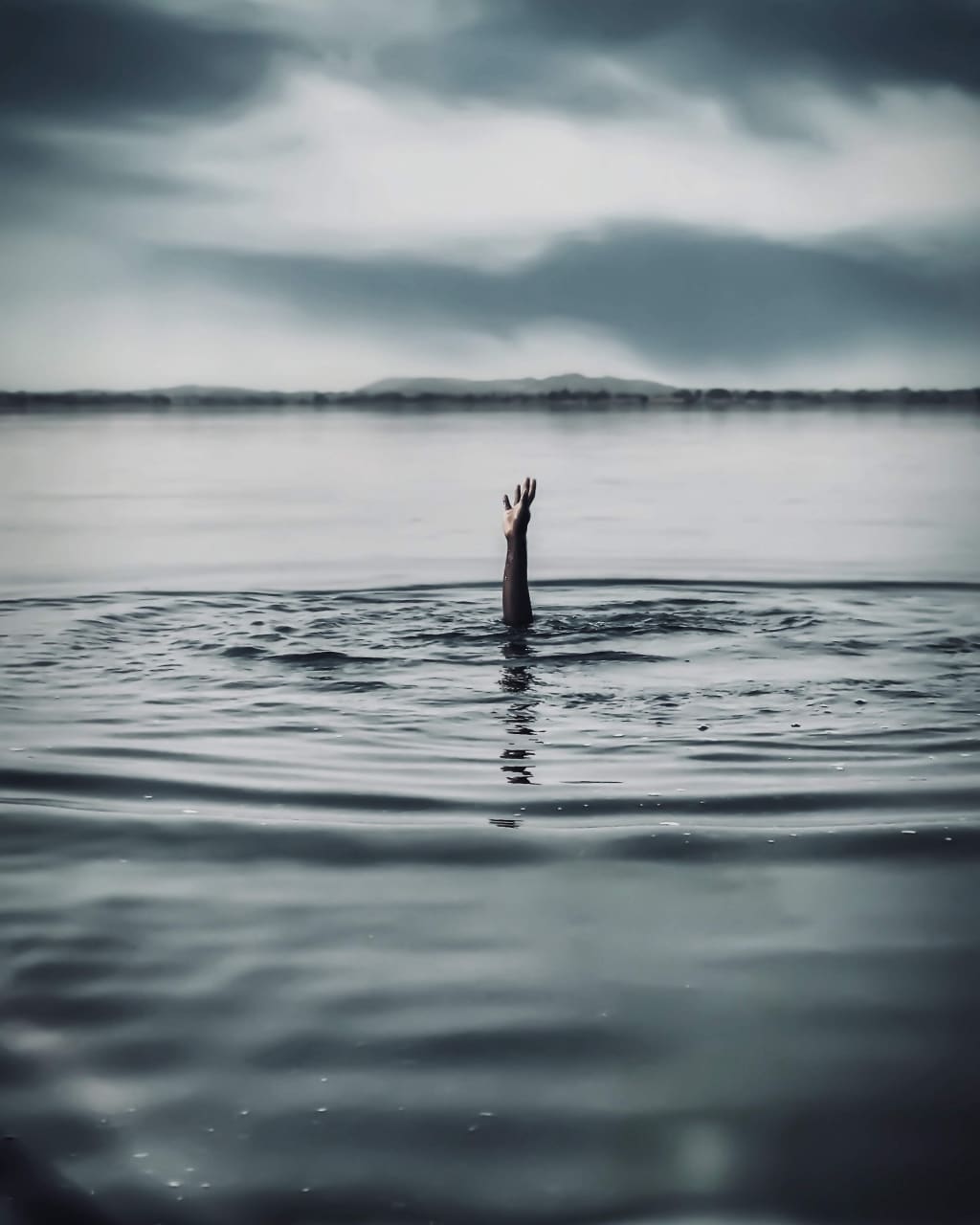
Surviving in extreme conditions is a testament to human resilience. The stories of those who have endured harsh environments and came out alive are often fascinating and awe-inspiring. One such story is that of Harrison Okene, a cook who spent three days inside a sunken ship at the bottom of the Atlantic Ocean. Harrison's survival, without oxygen tanks, electricity, communications, or food, is a remarkable tale of human endurance and luck.
The incident occurred in 2013 when Harrison was aboard a tugboat that was moving through the Atlantic waters along the coast of Nigeria. Early in the morning, a small storm hit the boat, causing a huge wave to form that crashed into the ship and broke the cable. The tugboat turned upside down, and its entire deck was underwater, with the ship's hull sticking out from the surface. The crew of 12 people were trapped in their locked rooms, as they had closed the doors in their cabinets as a precaution since there were many pirates in those waters. However, Harrison was in the bathroom during this time, and when the bathroom turned over, he fell on the ceiling, stunned and disoriented.
When Harrison heard the screams of the other crew members, he realized that the ship was sinking. Struggling to his feet, he made his way to the engineering room, which was a small pocket of air that wasn't fully flooded. Harrison realized that this was the safest place for him at that moment, with no fresh water or food. The cold, damp room with a flooded floor made it almost impossible to survive. Still, the man found a soda bottle and a life jacket with two flashlights attached to it. By this time, the ship had descended to the bottom of the ocean at a depth of 100 feet, about the height of a 10-story building, and the ship's hull was squeezed and made a grinding noise due to the pressure of the water.
Harrison heard a strange movement outside the door, which turned out to be sharks and other fish that were investigating the deck. Lack of food supplies and pressure weren't the main problems; the air pocket was small, which meant there was little oxygen. Every 24 hours, an average person consumes about 350 cubic feet of air, which meant that Harrison had less than one day left to breathe. But despite these challenges, he lived in such conditions for about 60 hours. This happened thanks to the water, which compressed the air by about four times due to the intense pressure around the ship.
Another problem was the Cook's breathing. When we inhale, we absorb oxygen, and when we exhale, we release carbon dioxide. This substance is dangerous to your health if its concentration in the air is five percent. Harrison slowly filled the room with carbon dioxide, and he couldn't get out. With each passing hour, it became harder to breathe, but he was fortunate that water absorbs carbon dioxide, and he unknowingly increased the water area and kept the carbon dioxide level below critical.
Hypothermia is a condition that may occur in a dark, cold room when your body temperature drops below 95 degrees Fahrenheit. You get cold, and your perception of the world gets distorted, and you may lose your memory and even experience terminal burrowing. This weird behavior occurs during hypothermia when a person tries to find a small shelter, even if they're in a closed room. They can even start digging the cold floor with their bare hands. Within two hours, Harrison's room was filled with icy water from below, and he wouldn't have survived in such conditions if he had stayed on the floor for several hours. Still, he managed to build a small platform with a mattress that kept him slightly above the water level.
With each passing hour, fear and despair more and more bound the survivor's mind. He couldn't get out for many reasons, including that only a little sunlight passes to such a depth, and Harrison couldn't see it. The soda bottle was almost empty, and the flashlight stopped working, and he found himself in pitch darkness. But his salvation was close. While rescuers were searching for survivors nearby, he was thinking about his family and life. Harrison noticed rays of light through a hole in the wreckage, and divers were examining the seabed. It was his only chance to survive. Harrison came out of the air pocket and swam towards the rescuers.
Making his way through the darkness, the ray of light coming from the diver's flashlight disappeared. Harrison tried blindly to find the diver, but they were at the other end of the deck. His oxygen was running out, so Harrison decided to return. There was almost no air left in his lungs, and he began to suffocate, but he still got to the rescue room. The main thing was not to despair; it was his only chance for salvation. After catching his breath and replenishing the oxygen supply in his lungs, Harrison made a second attempt. He got out of the room and noticed the diver. He swam towards them with all of his might. The lifeguardsaw Harrison and helped him to the surface, where he was finally rescued.
Harrison Okene's story of survival is a testament to the human spirit's resilience and strength. Despite the extreme conditions he faced, he managed to survive through sheer determination and luck. His story has become an inspiration to many, and it shows that even in the face of adversity, it is possible to overcome the odds and come out alive.
About the Creator
Eslam Abo
Hello !
Life is continuous and does not stop. There are events and stories that happened in the past and happened in the present as well as the future.
I find joy in discovering and reading and want to share it with you.






Comments
There are no comments for this story
Be the first to respond and start the conversation.